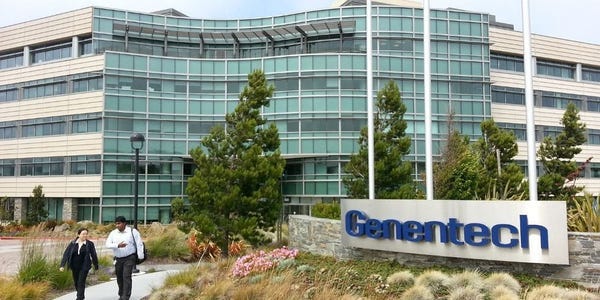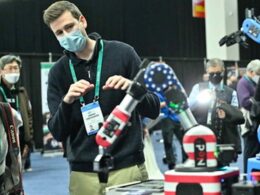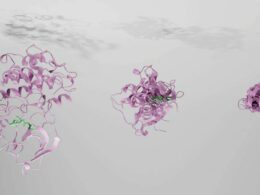Business Insider
March 2022
Key messages
- Drug-industry giants are betting billions on one of the hottest targets in cancer research.
- Researchers hope drugs targeting a protein called TIGIT can unlock a new era of immunotherapy.
- Insider identified 14 TIGIT leaders, ranging from pharmaceutical giants to tiny biotechs.
Big Pharma is betting billions on a new class of cancer treatments.
The hope is this new target, called TIGIT, can expand the benefits of immunotherapy to more patients.
While the first clinical data on TIGIT released in 2020 boosted interest in the protein, a new trial failure reported on March 29 by the field’s leader, Roche, raises the stakes on future studies to succeed.
That latest study showed Roche’s TIGIT drug wasn’t effective in small-cell lung cancer, a hard-to-treat type of cancer.
Despite the failure, analysts are still optimistic about TIGIT’s prospects in other tumor types, particularly non-small-cell lung cancer.
The first immunotherapies were approved a decade ago in 2011. These drugs, which harness the body’s own immune system to fight cancer, have delivered transformative benefits to some patients.
But the success has been limited to a fraction of cancer patients. In the years since, drug companies have tested thousands of treatment combinations to further that progress.
Researchers hope TIGIT-targeted drugs can improve existing treatments when used with other immunotherapies. The hope is these combinations will help more patients and provide longer-lasting benefits in fighting off cancer, ultimately expanding the utility of cancer immunotherapy.
The number of TIGIT-focused programs in development has nearly doubled in the past few years, growing from 13 in 2017 to 25 in 2020, according to the Cancer Research Institute.
Insider analyzed corporate transcripts and presentations from the financial-research firm Sentieo to identify 14 companies leading TIGIT research. This story was originally published in July 2021 and has been updated with the most recent developments in the space.
Roche has been leading TIGIT research for more than a decade

The company leading the TIGIT space literally discovered the protein.
Genentech, the California biotech powerhouse owned by Roche, first identified TIGIT and published research in Nature in 2008 showing the protein suppressed T cells.
T cells play a vital role in the immune system. They fight foreign invaders, including viruses and cancerous tumors. But the body produces certain proteins, like PD-1 and TIGIT, that normally stop T cells from overreacting. Having too many of these proteins can hinder the immune system in fighting cancer.
After that discovery, Genentech developed a drug to block the TIGIT protein, unveiling the first human results in May 2020. The antibody, called tiragolumab, helped treat patients with non-small cell lung cancer. The positive results kicked off a flurry of excitement, and Roche is now running several mid- and late-stage trials in a range of cancer types.
The enthusiasm took a hit this March when Roche said tiragolumab failed in its first late-stage trial, a study testing the drug in small-cell lung cancer. Analysts noted that is a particularly difficult-to-treat cancer type, and don’t think the failure spells doom for the TIGIT class, particularly in treating other types of cancer. Roche expects more data readouts for tiragolumab in 2022 in studies in non-small cell lung cancer, esophageal cancer, and cervical cancer.
Big Pharma has bought their way in, chasing Roche from behind

Close on Roche’s heels are six large drugmakers: Merck, Novartis, Gilead Sciences, Bristol Myers Squibb, GlaxoSmithKline, and AstraZeneca either are testing their own TIGIT drugs or have struck deals with biotechs for access.
Close on Roche’s heels are six large drugmakers: Merck, Novartis, Gilead Sciences, Bristol Myers Squibb, GlaxoSmithKline, and AstraZeneca …
Merck’s drug is the most advanced TIGIT program behind Roche. Called vibostolimab, the New Jersey pharma is testing it in combination with Keytruda, its PD-1 blocker that made $17 billion in 2021 sales.
A combo with TIGIT could extend Keytruda’s value and even further expand sales. Merck is running a range of trials with vibostolimab, including Phase 3 studies in non-small-cell and small-cell lung cancer along with Phase 2 studies in cervical and colorectal cancer.
The company hasn’t disclosed a timeline to results, but SVB Leerink analyst Daina Graybosch said in a March 30 note to investors she wouldn’t be surprised to see some readouts from Merck this year.
A combo with TIGIT could extend Keytruda’s value and even further expand sales.
The other five pharma giants have all bought their way into the TIGIT race.
Gilead paid $725 million in November 2021 to exercise an option that included two TIGIT drugs from Arcus Biosciences. The more advanced program, called domvanalimab, is expected to produce Phase 2 results in the second half of 2022 in non-small-cell lung cancer.
The British drugmaker GlaxoSmithKline paid $625 million upfront last June to iTeos Therapeutics for its TIGIT antibody. GSK is now running an early-stage human study testing it in combination with its own PD-1 blocker called Jemperli.
Bristol Myers also jumped into the space in 2021, paying $200 million last spring to Agenus to license AGEN1777, an antibody that blocks TIGIT and another, unspecified target. That drug entered the clinic in October 2021, with no results reported yet.
Novartis teamed up with the Chinese drugmaker BeiGene, paying $300 million upfront in December 2021 to gain access to its TIGIT drug. That drug, called ociperlimab, is now in pivotal trials in lung and liver cancer.
AstraZeneca is chasing its own wrinkle on TIGIT, starting human testing in late 2021 for AZD2936, an antibody targeting TIGIT and PD-1. That drug was developed in partnership with the biotech Compugen, which also has its own TIGIT program, COM902, in Phase 1 testing.
Others are also in human testing with fewer details

Details get hazier for other companies chasing TIGIT, including Merck KGaA, Seagen, and Coherus BioSciences.
Details get hazier for other companies chasing TIGIT, including Merck KGaA, Seagen, and Coherus BioSciences.
These three programs have all started initial clinical testing, but haven’t produced clinical data yet.
Still, each of these companies has a track record of developing and launching medicines. Coherus has said they expect data in 2023 to help determine Phase 2 research plans, while Merck KGaA and Seagen have not provided development timelines.
Finally, there’s a suite of smaller companies that have also started human testing for TIGIT programs: Innovent Biologics, Mereo BioPharma, Bio-Thera Solutions, and Akeso.
These are tiny biotechs, but immuno-oncology moves fast and companies can go from obscurity to massive buyouts in a matter of months based on positive data.
The London-based Mereo BioPharma expects to provide clinical data this June at the American Society of Clinical Oncology’s annual meeting.
Mereo has also started discussing potential partnerships with other drug companies for its TIGIT drug, called etigilimab, the biotech’s CEO said at an investor conference in February.
China-based Innovent has two TIGIT drugs in early human testing in China. One of those programs aims to block two proteins, TIGIT and PD-1.
Bio-Thera, another Chinese biotech, announced it had dosed the first patients with a TIGIT antibody in January.
Akeso, a Hong Kong-based drug developer, started dosing patients with its own TIGIT program last October.
These are tiny biotechs, but immuno-oncology moves fast and companies can go from obscurity to massive buyouts in a matter of months based on positive data
Originally published at https://www.businessinsider.com on March 31, 2022.












